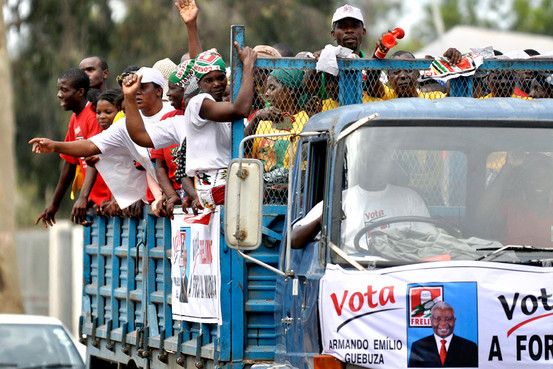Approximately 300 infected patients have survived Ebola treatment in Liberia since the outbreak here from March to September, Assistant Health Minister for Preventive Services, Tolbert Nyenswah, has announced.
Appearing on “Truth Breakfast Show”, a live broadcast talk show on Tuesday in Monrovia alongside foreign partners from the World Health Organization and the US’ Center for Disease Control, Mr. Nyenswah said if all of the survivors were combined since the outbreak in March, “We have close to 300 survivals.”
He named treatment centers at the JFK, ELWA unit one, two and three, among others, as areas where the cases were treated. Nyenswah, who chairs the government’s Incidence Management System, said things were “gradually improving with what they do in ending the outbreak”, expressing confidence that the WHO’s prediction could be disproved if such positive response continues.
He noted that in Lofa County’s Ebola Treatment Unit where weeks ago, 100 positive cases were being admitted, emerging report is now indicating that cases have reduced between five and ten as a result of the community engagement.
According to him, the prospect was that in two or three weeks, if the current scale of intervention continues at the community level, “We can reduce the cases in two or three weeks to zero cases in Lofa.”
Working closely with partners here, Nyenswah said community mobilization and awareness is critical, in terms of providing them active case surveillance, checking for sick and dead people or visitors, among others.
As a result, he boasted that today, West Point Community, has become a success story, and further named Ashmum Street, Rock Valley, New Georgia Community, Caldwell, St. Paul Bridge, Diggsville, ELWA, Seventy Second, Police Academy, and others as organizing themselves in the process.
Notwithstanding, the coordinator of the Ebola fight stated that infection prevention and control still remain very critical, stressing that training health workers, providing them PPEs, and what they need, are very important to winning the fight.
“If you look at the laboratory services since the outbreak and where we are today, you will note that we have only one lab, which was at the Liberia Institute of Bio Medical Research.”
At this lab, he said they conducted 30 to 40 tests per day. However, with the increase of the lab for three across Liberia, he said they can now perform around 300 to 400 tests a day on Ebola cases. Additionally, he said the labs are expected to be expanded to additional three – one in Bong, one of [Clay Ashland], and one in the Southeast Liberia which will total six labs in the country.
As regards community dwellers’ demand to have test results before releasing dead bodies to health team, the Assistant Minister pleaded that “it won’t be possible because Ebola lab is not a rapid diagnostic test that runs in fifteen minutes like malaria. He said instead, that Ebola lab takes between four to eight hours.
While acknowledging increased support that Liberia has been receiving from partners in the past three weeks, Mr. Nyenswah said challenges still remain, explaining that to build and run an ETU with 100 beds for a month costs around two million dollars.



